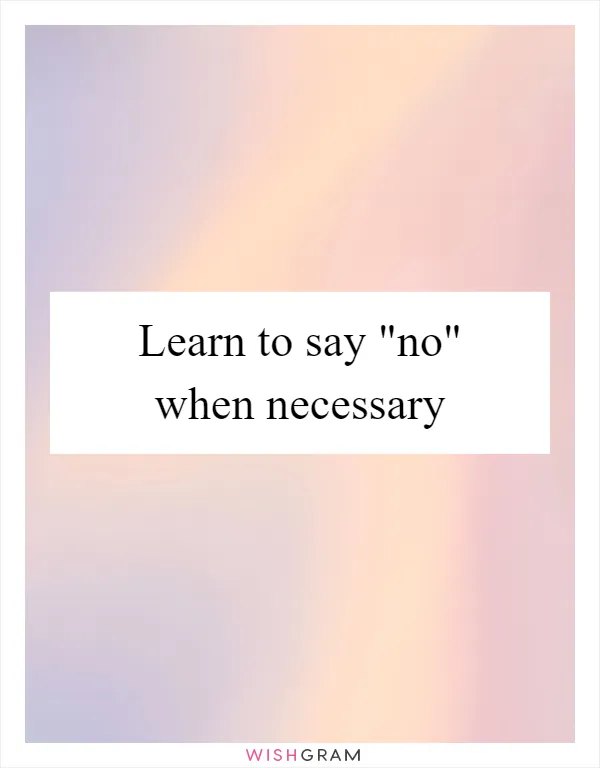Learn to say "no" when necessary
Learning to say "no" when necessary is a crucial aspect of self-improvement. It is a skill that allows us to set boundaries, prioritize our own needs, and maintain a healthy balance in our lives. Often, we find ourselves overwhelmed with commitments and obligations, leaving little time for self-care or pursuing our personal goals. By mastering the art of saying "no," we can regain control over our lives and focus on what truly matters to us.
One of the main reasons people struggle to say "no" is the fear of disappointing others. We worry about hurting someone's feelings or being seen as selfish. However, it is important to remember that saying "no" does not make us bad people; it simply means we are being honest about our limitations and priorities. By setting boundaries, we communicate our needs and values, which ultimately leads to healthier relationships and increased self-respect.
Saying "no" also allows us to avoid overcommitting ourselves. When we constantly say "yes" to every request or invitation, we spread ourselves too thin and become overwhelmed. This can lead to stress, burnout, and a decline in our overall well-being. By learning to say "no" when necessary, we can protect our time and energy, ensuring that we have enough resources to devote to the things that truly matter to us.
Furthermore, saying "no" enables us to focus on our own personal growth and self-improvement. It gives us the freedom to pursue our passions, explore new opportunities, and invest in our own development. By prioritizing our own goals and aspirations, we can enhance our skills, expand our knowledge, and ultimately become the best version of ourselves.
Learning to say "no" effectively requires practice and self-awareness. It is important to assess each request or opportunity carefully, considering its alignment with our values, goals, and current commitments. It is also crucial to communicate our decision respectfully and assertively, without feeling the need to justify or apologize excessively. By being clear and honest in our responses, we can maintain healthy boundaries and avoid unnecessary guilt or resentment.
